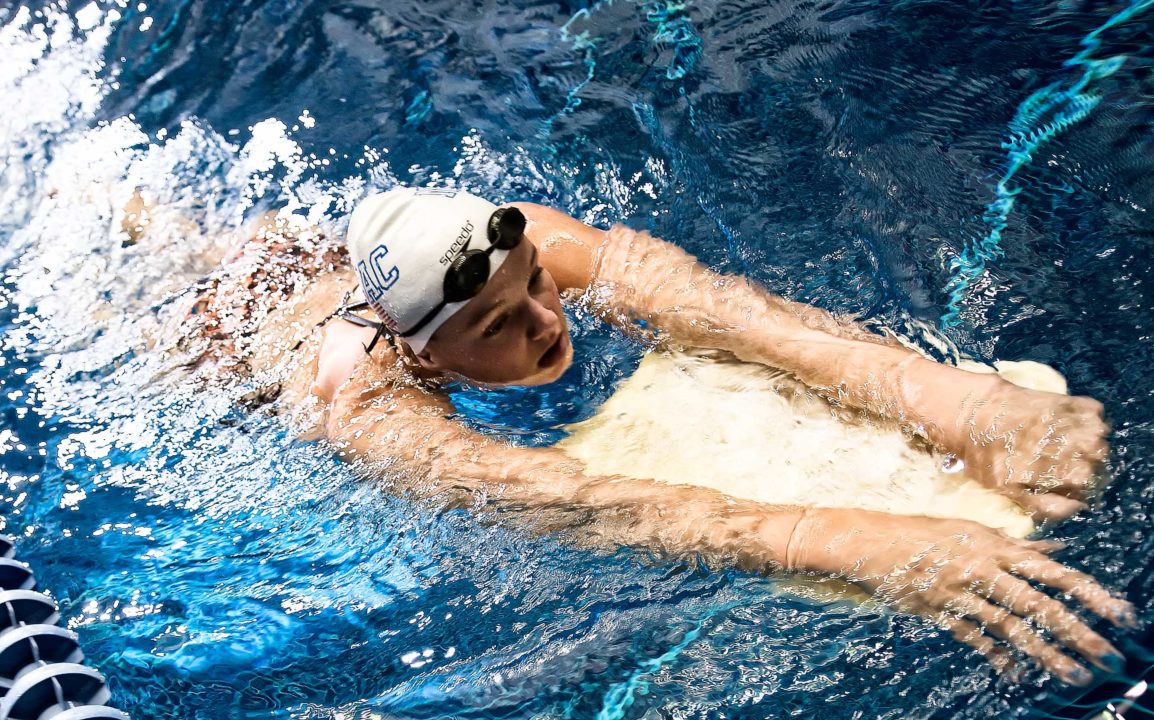When it comes to swimming faster, there is no shortage of information out there.
Most of the tips, articles, and information are centered on trying to help you improve.
But for most of us, we would simply settle for being able to maximize what we already have. That way, we could hop in the water and swim to our ability more consistently in training and competition.
And one of the fascinating ways to get the most from ourselves is something called post-activation potentiation.
PAP is a strategy for creating short-term improvement.
It goes something like this:
- Do a few reps of a resistance exercise (squat jumps, heavy resistance pulls on stretch cords)
- Rest for around ten minutes
- Swim like your hair is on fire
Pretty simple, right?
The magic is finding the right exercises and using the correct rest protocol.
And while there have been a few studies on the effects on PAP with competitive swimmers, with generally positive results, until recently, there hasn’t been any research on whether a PAP warm-up could power up a swimmer’s freestyle kick.
Regular warm-up vs PAP Warm-up
Building on a lot of pre-existing research in this area, a team of researchers in Portugal and Singapore (Ng et al, 2020) looked at whether a PAP warm-up could help swimmers go faster when it came strictly to freestyle kicking.
Participants were all male, an average of around 22 years, and all had competed in local and national swimming competitions.
The swimmers were randomly assigned in a crossover manner to do:
- Standard warm-up of 1,400m
- Warm-up of 700m plus 2×5 countermovement jumps
The swimmers then took 8 minutes of rest before doing a 25m freestyle kick for time on a kickboard.
The result?
When they did the PAP warm-up, the swimmers kicked faster and generated more power. Thrust improved by 15% and speed improved by 10%.
The next step
The good news with this paper is pretty clear.
Incorporate a few countermovement jumps into your warm-up and your kick will be more kicky.
But above the performance benefits, there is the accessibility part of this research that is awesome.
A lot of prior PAP research with athletes utilized heavy equipment that wasn’t accessible or convenient to bring to the pool.
Power racks, medicine balls, weighted vests, pull-up bars—things we don’t always have at the pool. Especially when we are on the road for swim meets.
See also: 10 Dryland Workouts for Swimmers
Researchers noted that one of the perks of this form of warm-up is the accessibility:
“Just using participants’ body weight and performing two sets of five maximal repetitions of unloaded countermovement jumps is a simple, convenient and effective way to achieve better performance.”
So, the next time you got a big swim workout coming around, and you want to get the most from your legs in the water, consider adding some countermovement jumps to your warm-up.
ABOUT OLIVIER POIRIER-LEROY
Olivier Poirier-Leroy is a former national level swimmer. He’s the publisher of YourSwimBook, a ten-month log book for competitive swimmers.
 He’s also the author of the recently published mental training workbook for competitive swimmers, Conquer the Pool: The Swimmer’s Ultimate Guide to a High-Performance Mindset.
He’s also the author of the recently published mental training workbook for competitive swimmers, Conquer the Pool: The Swimmer’s Ultimate Guide to a High-Performance Mindset.
It combines sport psychology research, worksheets, and anecdotes, and examples of Olympians past and present to give swimmers everything they need to conquer the mental side of the sport.
Ready to take your mindset to the next level?
Click here to learn more about Conquer the Pool.
COACHES & CLUBS: Yuppers–we do team orders of “Conquer the Pool” which includes a team discount as well as complimentary branding (your club logo on the cover of the book) at no additional charge.
Want more details? Click here for a free estimate on a team order of CTP.

We all know less is more when you are developing swimmers. Hard work is useless and 22 year old lab rats are great test subjects. Like everything else, use this study. Stretch and activate your muscles before practicing.